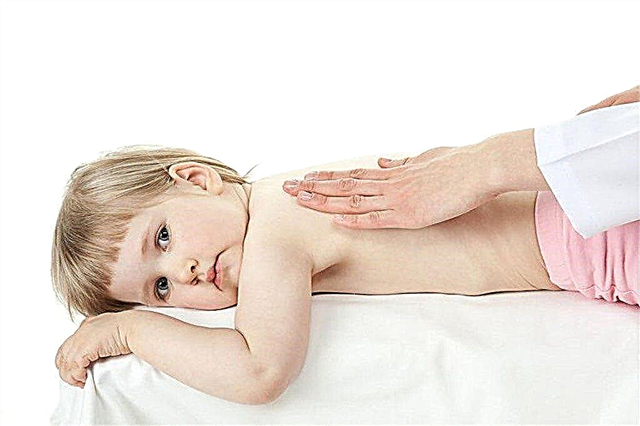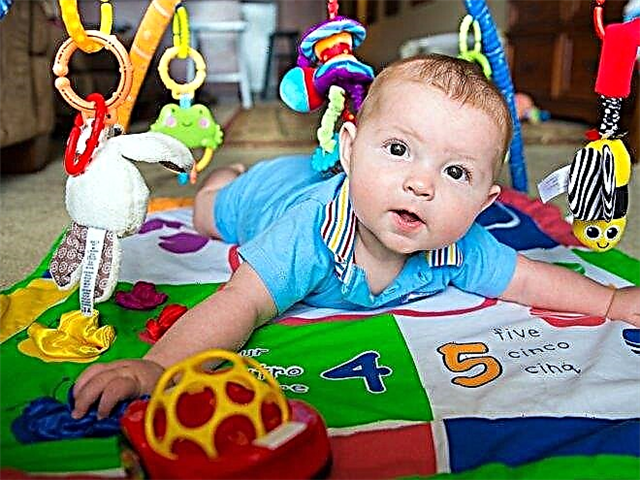
If the baby is furiously scratching and tugging at its ears, this cannot go unnoticed by the parents. And if this happens rarely, then there is no particular reason for worry, but if the baby does it all the time, and, worse than that, combs the ears into the blood, then the problem is obvious. Only the reasons for this strange behavior remain hidden. We will try to understand them within the framework of this article.
When does this happen?
The baby cannot tell his parents what exactly bothers him, but he tries in every possible way to draw attention to his well-being. And the reason may not be in the ears at all. Toddlers are quite curious and like to get to know their own body. A child may play with his ears just out of curiosity feeling and examining them.

But things are not always so harmless. Most often, a child scratches his ears because he has uncomfortable or moderate pain in the hearing organs or somewhere nearby, because it is still difficult for a child to understand exactly where to scratch if it itches. Acute pain usually does not cause the desire to scratch the sore spot, and touching is very unpleasant. But long-term sluggish irritation may well become a reason for such behavior. Let's consider the possible pathological and physiological causes that may be present.
Possible reasons
The desire to comb the ears occurs in a child for the following reasons:
- Violation of hygiene. If a child is rarely bathed, then the reason why he rubs his ears may lie in the banal contamination of the auricles and the skin fold behind them. Excessive accumulated earwax can also cause discomfort. Parents can cope with such a problem on their own, without seeking help from a pediatrician.

- Parasitic disease. Itchy ears can be caused by parasites such as lice, fleas, and skin and ear mites. In medicine, this is called parasitic otitis media. It can be external, when only the outer ear is affected, and it can also be middle - when the middle part of the hearing organ is involved in the process. A parasitic lesion can be recognized by a reddened and slightly swollen ear. As the number of parasites grows, the skin on the ears becomes drier, begins to peel off, and small pustules may appear.
With similar symptoms, you should immediately contact a pediatrician, and preferably an infectious disease specialist, if there is such a doctor in the clinic.


- Otitis. Only otitis externa can itch and itch; it is easy to recognize by inflammation of the auricle. Quite often, abscesses and boils appear. Otitis media of the middle ear does not itch, but hurts. However, a newborn and an infant cannot clearly communicate this, and simply rubs their ear, not understanding where and what is wrong. It is possible to suspect otitis media by the characteristic discharge from the ear. They can be clear, yellowish, or purulent. If you easily press your fingers on the tragus (a small cartilage located right at the entrance to the ear canal, then the pain increases, and the baby begins to worry and cry.
You need to contact a pediatrician or otolaryngologist without delay.

- Otomycosis. Fungal damage to the hearing organs causes itching and a lot of unpleasant impressions. It is noteworthy that such a pathology develops for a very long time, gradually and almost imperceptibly. At first there is a slight itching, then it grows. The baby will scratch the ear with seizures, as itching sensations appear. There is practically no pain with otomycosis. It is very difficult to suspect such a disease. Parents may be alerted by a slight swelling in the ear canal, sometimes whitish discharge (not always), as well as a possible decrease in hearing acuity, with which the baby will react to a constant feeling of congestion. It is possible to establish otomycosis only with the help of laboratory diagnostics, microscopic examination, which will detect fungi. You will have to be treated by an infectious disease specialist and an otolaryngologist.

- Psoriasis. Itching and unpleasant burning sensation causes psoriasis in the child if it develops in the ear area. Both the auricle and the middle ear area may be affected by seborrheic psoriasis. In this condition, a red rash appears first. With her appearance, the child begins to scratch the ear. Then there is strong peeling, the skin can acquire a whitish tint, the scales of the epidermis are separated very easily. With suspicions of such a pathology, the child is taken to an appointment with a dermatologist and an ENT doctor.
- Allergy. An allergic reaction may well cause itching in the ear. Usually, in this case, the skin is practically unchanged, sometimes a slight swelling can be observed. It all depends on what type of allergic reaction began to develop. If it has caused allergic otitis media, then there will be no discharge from the ear, as with ordinary otitis media. But pressure on the tragus will show that middle ear infection is the cause.
If the allergy manifests itself as dermatitis, then it is unlikely that the symptoms will concern only the hearing organs. Skin rashes are sure to be found on other parts of the body. If you suspect an allergic reaction, you should contact your pediatrician, allergist and ENT specialist.


- Insect bites. If the child has been bitten by a mosquito or other insect, then the itching in the area of the bite will not be particularly long. True, a child can begin to scratch his ear in a dream, because insect bites not only itch on their own, but also cause local inflammation, and sometimes a slight allergic reaction. Parents can cope with such a problem on their own, without going to a doctor. If a bite is found, it is smeared "Fenistilom". Even without this, the bite will not bother the baby for a long time, and after a couple of days the child will stop scratching the ear.
- Foreign object. If something foreign has got into the child's ear, then it will reasonably bother him. If the parents managed to see a foreign body, then you can get it out with a small tweezers and on your own. But if the object is located deeply, in order to avoid injury to the hearing organs, it is better to seek help from an otolaryngologist who, using special tools, will be able to remove the object without pain and risk of injury.


How to examine a child?
If the child begins to scratch his ears, then it is imperative to conduct the first home examination. To begin with, the child's temperature is measured. Fever is usually characteristic of otitis media, teething, inflammation of the hearing organs.
Then you need to examine the auricle. To do this, you should use a small household flashlight. First, the condition of the auricle is assessed - size, presence of puffiness, rash, abscesses, peeling. If nothing is found, you should examine the ear canal with a flashlight.


The accumulation of earwax, discharge from the ear, a foreign body in the ear canal, as well as insect bites, in most cases, can be discerned by everyone, even parents who are not knowledgeable in medicine. After the examination, a test for otitis media is carried out by lightly pressing on the tragus. In the absence of a response to pressing, other reasons should be considered.
Undress your child and examine the skin for rashes and possible allergies. If the temperature is normal, the ear is visually healthy, it does not hurt, then it is worth observing the child, in what situations and how he scratches his ear, perhaps the reasons lie in something completely different.
If no obvious reason is found
If no pathology is found, then it is worth considering others the reasons why the baby can theoretically and practically start scratching his ear:
- Obsessive-compulsive movement syndrome. If a child is already a year old or more, then he can scratch his ears for psychological and neurological reasons. This may be the result of severe stress that the baby has experienced. Sometimes we are talking about the so-called obsessive-compulsive movement syndrome. In this case, parents may notice that the child does not always start scratching his ears, but in strictly defined situations associated with excitement, experiences. So, at the physical level, the toddler is trying to sublimate his accumulated nervous tension. You should consult a neurologist, child psychologist and child psychiatrist.
- Teeth. Unpleasant and obsessive itching in the gum area can also make a child want to scratch his ear. This usually happens when the baby is 5-6 months old or older, when the period of teething begins. This version can be confirmed by swollen gums on the side from which the child pulls the ear. In the absence of pathological symptoms from the ears, it is worth considering this version of what is happening.
- Hunger or tired. It is very difficult, from a medical point of view, to explain why a child scratches his ears when he wants to sleep or eat. But the fact remains - very often little children react in this way to fatigue and hunger. They not only rub their eyes and nose, but also pull their ears.
If after the child was fed heartily, watered and put to bed, he stopped scratching his ear, then, probably, the parents were able to unravel the secret "signals" of the little man.
For information on how to properly clean the ears of a child and an adult, see the next video.



